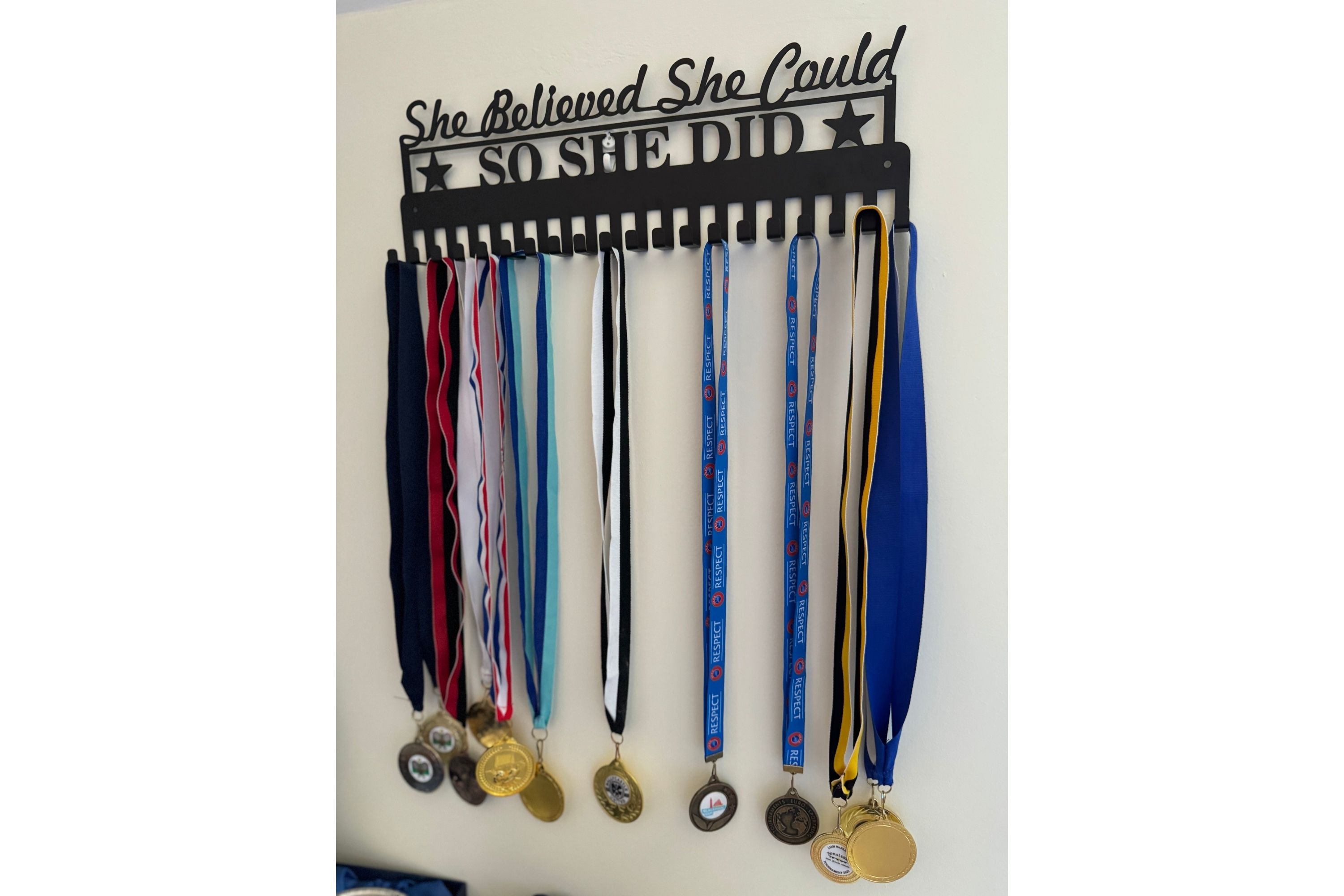I'm a parenting expert - here's why Sports Day IS for winners and losers, and shouldn't be a non-competitive woke fest
Let's bring good, old-fashioned, healthy competition back to school Sports Day


Should school sports days be competitive? It's a debate that kicks off every single year as working parents beg for time off to watch their kids get rewarded for not winning races. Surely it's time to ditch this woke madness and bring back good, old-fashioned competitive sports days for kids?
Sports day: two words that can strike terror into the hearts of kids and parents alike. Will your kid’s class nemesis crush them in the egg-and-spoon race? Will your boss make you feel weird about asking for time off to watch small children run around with their legs tied together? And will the whole thing get rained off at the last minute anyway, forcing you into the awkward position of having to ask for yet another day off?
If we must go to these lengths to beg to watch kids run amok in the name of sports day, let’s make it count. You don't have to be an OTT competitive sports parent to want medals and podiums, winners and losers, refreshments and photo-finishes. And enough blood, sweat and tears to make it all worthwhile.
Why school sports day should be competitive
Non-competitive school sports days aren't protecting kids from feeling left out; they're setting everyone up to fail. Here’s why I think it's time we brought back old-school competitive sports days. (And FYI, I initially wrote sports days ‘should be a fierce battle’ in my headline but my editor made me tone it down a bit...)
- Life won’t reward you for showing up: I’m convinced non-competitive sports days are partly to blame for the fact that millennials are sometimes considered, well, a little bit workshy. As kids, we consistently told this generation that they were exceptional just for showing up, and we applauded all their efforts and commended their sportsmanship - even when they ran away from the finish line. Is it any wonder some of them show up for work and seem a bit nonplussed if they’re expected to put some effort in? Making something like sports day non-competitive gives kids a false sense of their capabilities, in my view, and risks turning them into adults who expect plaudits and praise just for breathing. When else in life will they be congratulated for average performance or bestowed with silverware just for making an appearance?
- Competition is an important life skill: Making an offer on a house, applying for a job, even dating. A healthy dose of competition is part and parcel of all these elements of adult life. Possessing the determination to see off the competition is an important life skill, as is developing the resilience to bounce back after defeat. And there’s no better place to learn these lessons than the school sports field. If we rob kids of the chance to develop their competitive skills at school, when the stakes are low and the outcome inconsequential, we risk creating a generation of adults who don’t know how to handle healthy competition in the real world.
- Winning feels good: Is there a more glorious feeling for a kid than the joy of a hard-won win? In our rush to avoid excluding kids on sports day, we seem to have overlooked the fact that non-competitive sports day events deprive other kids of the opportunity to experience the life-altering thrill of winning.
- Competition inspires motivation: What’s the point in giving your all to be first across the finish line if there are no winners? Reward motivates and inspires us all. The promise of a medal is what spurs a sporty kid to beat their personal best or to shave a few seconds off their race time. But if everyone is celebrated equally, those accomplishments very quickly lose all meaning. So why bother?
- Losing has value too: Have you ever had a boss or a friend or a partner who can’t stand to lose an argument or who always has to win, no matter the cost to the relationship? Then you know just how toxic it is, and how detrimental to deprive kids of opportunities to learn how not to be a sore loser. Life is all about winning and losing. You lose your job. You win a promotion. You lose your no-claims bonus. You win the lottery. The only way you won’t know how it feels to win or lose in life is if you never take a risk. So denying kids the opportunity to lose with grace is even more harmful, in my view, than never allowing them to win. Because if we never discover what defeat feels like then how can we ever be expected to develop the skills to accept it, deal with it, and - most importantly - move on?

Dr. Amanda Gummer, a research psychologist specialising in child development, believes children need the opportunity to "gain recognition for their skills" as well as to accept that different people have different strengths and challenges. "As long as it's done with plenty of collaborative opportunities so all children get a chance to be a part of a winning team, giving sporty kids a chance to get recognition is a great way of celebrating their achievements and boosting confidence - as are academic and other prize-giving events," she says.
I couldn't agree more. There’s a sign on the wall at the gym where my husband trains that sums up my thoughts on why non-competitive sports days aren't doing our kids any favours. It says "I’m not trying to be better than you. I’m trying to be better than me.”
Lucy Wigley, our news writer and a mum of two, can see both sides of the argument. “For SEN parents, competitive sports days might prove a headache. But for competitive children and those who excel at sports, it's a time to shine and shouldn't be taken away from them. I have a highly competitive child who spits bricks every year because he always comes third in the 100m finals. He strives to do better every year, and it's good for him to try.”
Is our view of sports day rooted in our own childhood experiences? Sarah Handley, our Money Editor and a devoted auntie, thinks so. “I always dreaded sports day in school - I was much more academically-minded and had zero skill when it came to hand-eye coordination, physical speed or agility. But I was also a people-pleaser and felt pressured to partake in races where I inevitably came last - which felt terrible, especially when I was used to being good at other areas of the school experience.”
GoodtoKnow Newsletter
Parenting advice, hot topics, best buys and family finance tips delivered straight to your inbox.
Carly Cowell, our Social Media Editor and a mum of three, is with me on the fact that sports days should be competitive but adds that there should always be exceptions to accommodate children who find sports day difficult. “My eldest daughter went to our local village school- a very ‘lovely’ school, but too lovely. They did non-competitive sports days and witnessing the day itself was the final straw for us moving schools,” she says.
“Kicking footballs into nets (badly), welly wanging (it’s a country thing), falling off beams - and still getting medals! I get what they were trying to do, but it didn’t feel helpful in preparing them for the real world. But what a difference at the school we moved to, which has a traditional, competitive sports day. It’s team-based so the children who aren’t very sporty don’t get singled out, and when sports day became too much for my eldest with undiagnosed ASD, the school invited her to sit with staff to help be a judge and hand medals out instead. I think there’s room for both approaches.
And that, in a nutshell, is what the true spirit of competition is all about. Instead of frowning upon competitive sports days in case anyone feels left out, we should be celebrating kids who want to take part in competitive sports. Because the inner glow that comes from competing to be the fastest or the first - even though you risk defeat - will still be shining long after those cheap and easy low-stakes 'medals' have been tossed aside and forgotten.

A selection of medals won by our writer's daughter
How to be a supportive parent on sports day
However you feel about sports day, there are ways to offer your child support. Try these expert tips from MBACP counsellor Georgina Sturmer:
- Celebrate the effort alongside the achievement. Win or lose, there’s always an opportunity for praise and encouragement. Maybe it’s a record time, perhaps it’s a smile that’s been on their face all day, or maybe it’s the way that they have cheered on their teammate.
- Be a good role model from the sidelines. It’s fun to get involved on the day, but remember that children copy what we do, not what we say. So if we want our children to try hard and be supportive, that’s what they need to see when they look over towards us.
- Remember that It’s their day, not yours. Sports Day can bring up all kinds of feelings from our childhood. But this is our stuff, and we don’t need to pass it on to our children.
- Help them to prepare. This isn’t about squeezing in some extra training. It’s about checking in with our children to see how they are feeling. If they’re excited, great. If not, be curious about why. And if something is making them anxious, this is an opportunity to be supportive before the big day.
- And if you can’t be there? Manage their expectations in advance so that they know that you might not be able to attend. Hopefully, all of the parents are supportive of all of the children. But if you’re worried about your child feeling left out, consider asking other parents to step in and help cheer them on.
For more topical family features, check out I walk 10,000 steps a day - what our family pet taught me or I tried the ‘romanticise your life’ social trend as a busy mum of three - here's what happened (and how to try it for yourself). Or have a read of our parenting expert's take on the one emotional habit that can affect kids' security and trust in themselves, how to raise confident kids and how to bring up resilient kids.

Heidi is a seasoned parenting journalist with over 15 years of experience. She has contributed to numerous UK national newspapers, including The Guardian, The Times, and The Telegraph. Her work has also appeared in a variety of print and digital magazines, such as Psychologies and Mother & Baby, where she was Shopping Editor for six years. In this role, she specialised in consumer features, including buying guides and baby gear reviews. Heidi is also a mum of three.